Conclave: a morality play with cool outfits
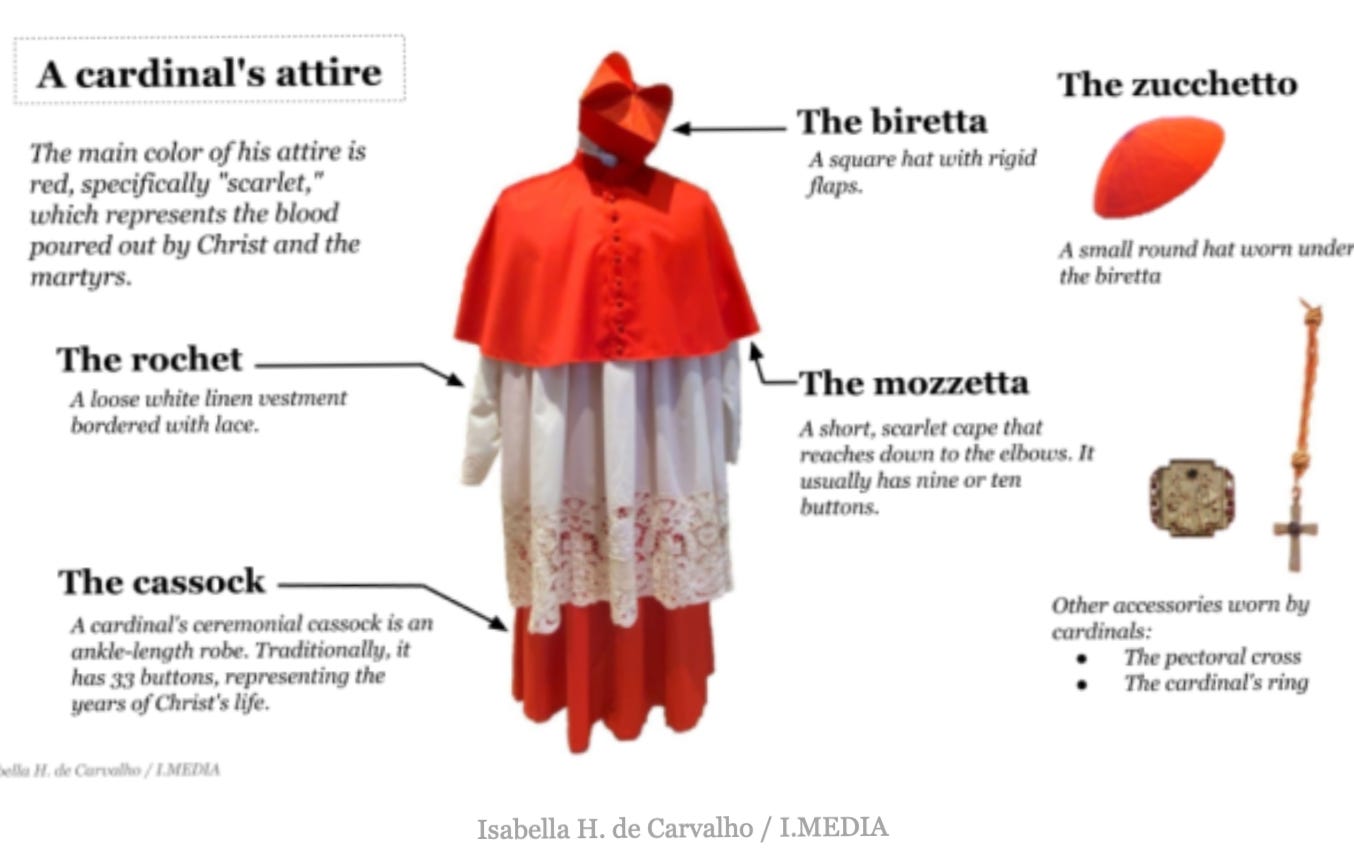
What first pulled me into the movie, Conclave, wasn’t the plot about ambitious cardinals vying to be pope but rather the pomp: the outfits and extremely specific protocol and rituals of life in the Vatican. The movie begins with the death of the current pope, and once they remove the dead pope’s body from his room, they seal it shut with this beautiful red ribbon and red wax stamp, and as I watched, I wondered to myself: Where do they source their ribbons? I wondered: Who first came up with these very specific procedures, how long have they been doing them, and, is there some kind of gigantic training manual for the newbies?
On our recent family vacation, I’d brought two books with me. One of them was Inner Work: Using Dreams and Active Imagination for Personal Growth by Robert A. Johnson. (The other was Lady Chatterley’s Lover by D. H. Lawrence!) But Amelia, you’re thinking, Inner Work came out in 1989! How did you even come across it? Well, I first read Dream Wise: Unlocking the Meaning of Your Dreams by the hosts of This Jungian Life, and in the back of the book, they suggest other books. This was one of them.
I’m glad that I picked it up, though, because while I really enjoyed Dream Wise, Inner Work’s approach to trying to understand your dreams is a bit more straightforward and it also emphasizes ritual, which the author defines as “symbolic behavior, consciously performed.” It’s not enough to interpret your dream, the author, Robert A. Johnson argues. You have to then do something physical with what you’ve learned. The Jungians, in my experience, are big on ritual and what I’ve heard some of them call the “religious function.”
In the paragraph just before this definition of ritual, Johnson, himself a Jungian analyst, writes:
All my experience as a psychologist leads me to the conclusion that a sense of reverence is necessary for psychological health.
I bring all of this up because one thing that secular, modern life doesn’t seem to care about, but religion does is exactly this: a sense of reverence. In Goldilocks terms, I think it’s fair to say that the Vatican has a wee bit too much reverence and ritual and your average, non-religious human in 2025, not enough.
This is where my head was at for the first twenty or so minutes of the film: thinking about religion, Jungian psychology, and how I’d like to visit the Vatican one day. At the same time, I’m also slowly being pulled into the actual story, the plot.
Our main character is Cardinal Lawrence, played by a personal favorite of mine (everyone’s?), Ralph Fiennes.
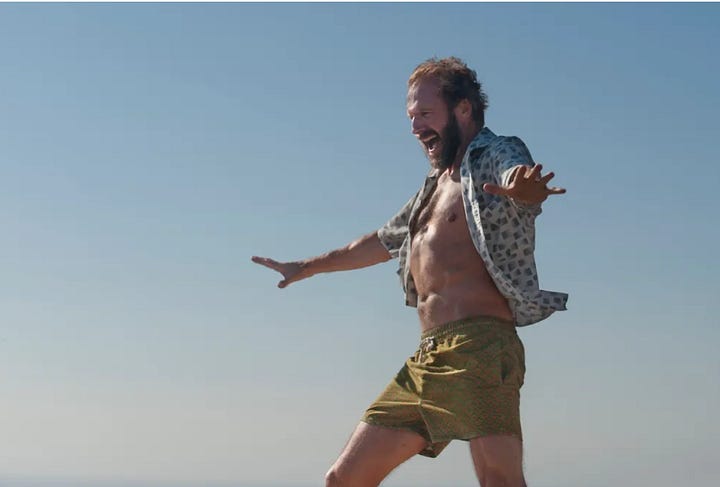
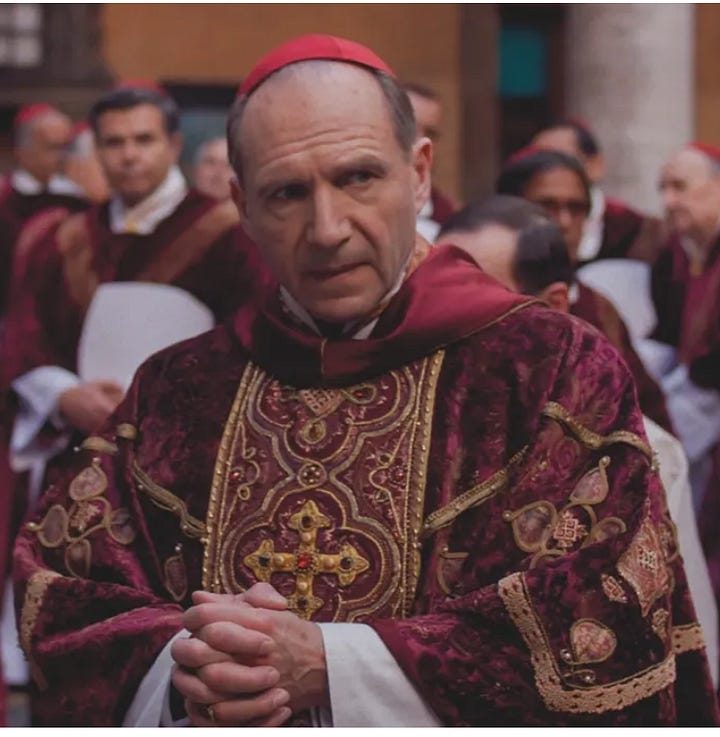
He’s dean of the College of Cardinals, and this position makes him the one who is essentially “manager” of the conclave—the conclave being the process where all the cardinals convene and vote for a new pope. We learn pretty early on that Cardinal Lawrence doesn’t want this responsibility nor does he want to be pope. In fact, we learn that he tried to quit his position as dean but was denied his request by the late pontiff. This makes Cardinal Lawrence what feels to me like a well-worn archetype: the leader who doesn’t want to lead but(!) it’s this very reluctance which makes him the perfect candidate for the job. Like Frodo Baggins. Or that one, quiet parent who doesn’t even want to join the PTA (but who would obviously make the best president).
What’s fun about Conclave is that our antagonists are also men of the cloth, a.k.a. cardinals. (Alt title: Cardinals Behaving Badly.) One of the bad ones, Cardinal Tedesco, is seen puffing on his vape pen, while another bad one, Cardinal Tremblay, seems semi-invigorated by the pope’s passing. Tremblay, I think it’s important to note, is portrayed by John Lithgow, whom my husband described to a friend via text as “the dad in Harry and the Hendersons, but in like a totally different role.”
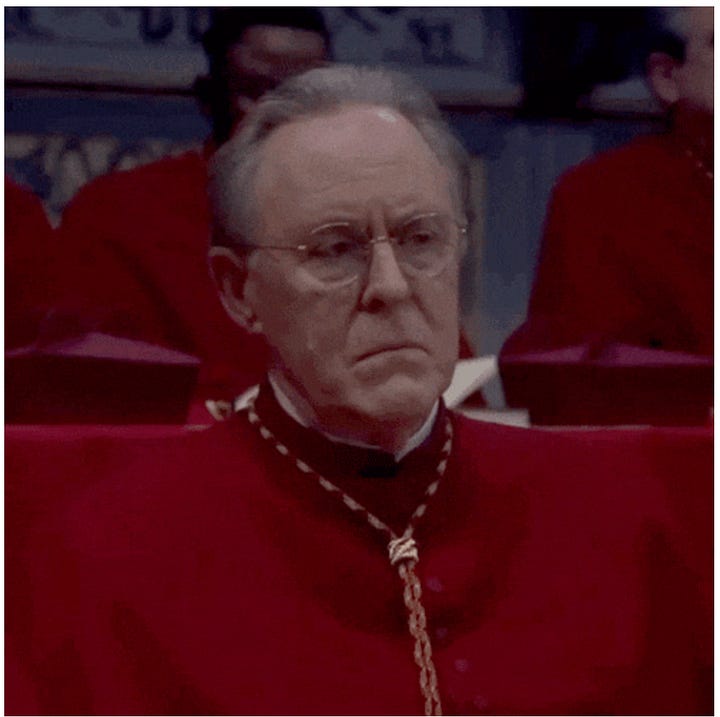
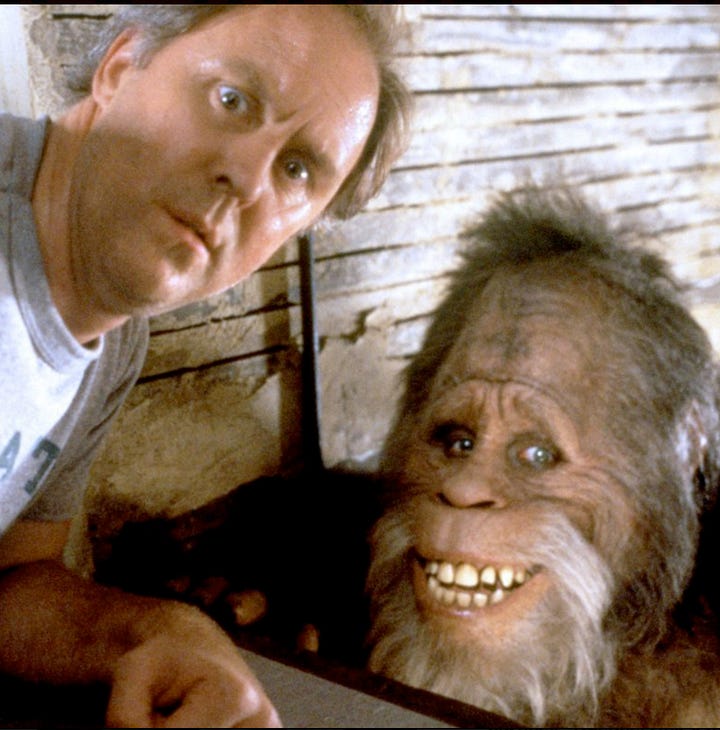
For the sake of brevity (and enjoyment) what you need to know is that identity politics are alive and well in the Vatican. And of the initial front runners, Cardinal Vape Pen is far too racist to be pope. And Cardinal Tremblay is far too eager. The other cardinal getting votes is Cardinal Adeyemi who is Nigerian but too “conservative” a.k.a. homophobic. This leaves us as viewers kind of, sort of rooting for the “progressive”, Cardinal Stanley Tucci, who comes off as less racist, less homophobic, and who, bonus, seems to consider women to be three-dimensional people. Cardinal Lawrence himself gets a smattering of votes as well as this other very outsider-y cardinal, Cardinal Benitez.
Keep reading with a 7-day free trial
Subscribe to The Art of Losing to keep reading this post and get 7 days of free access to the full post archives.

